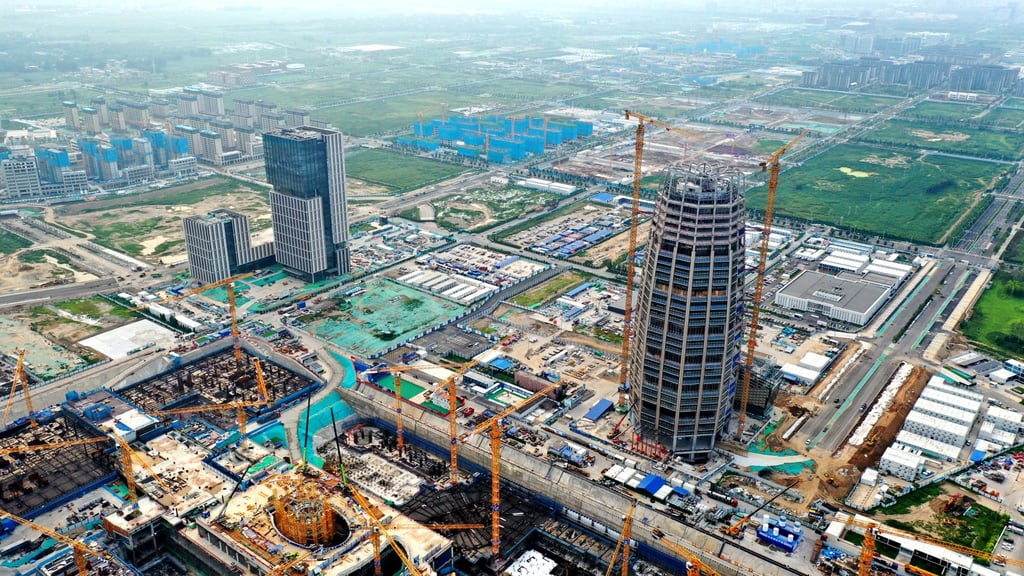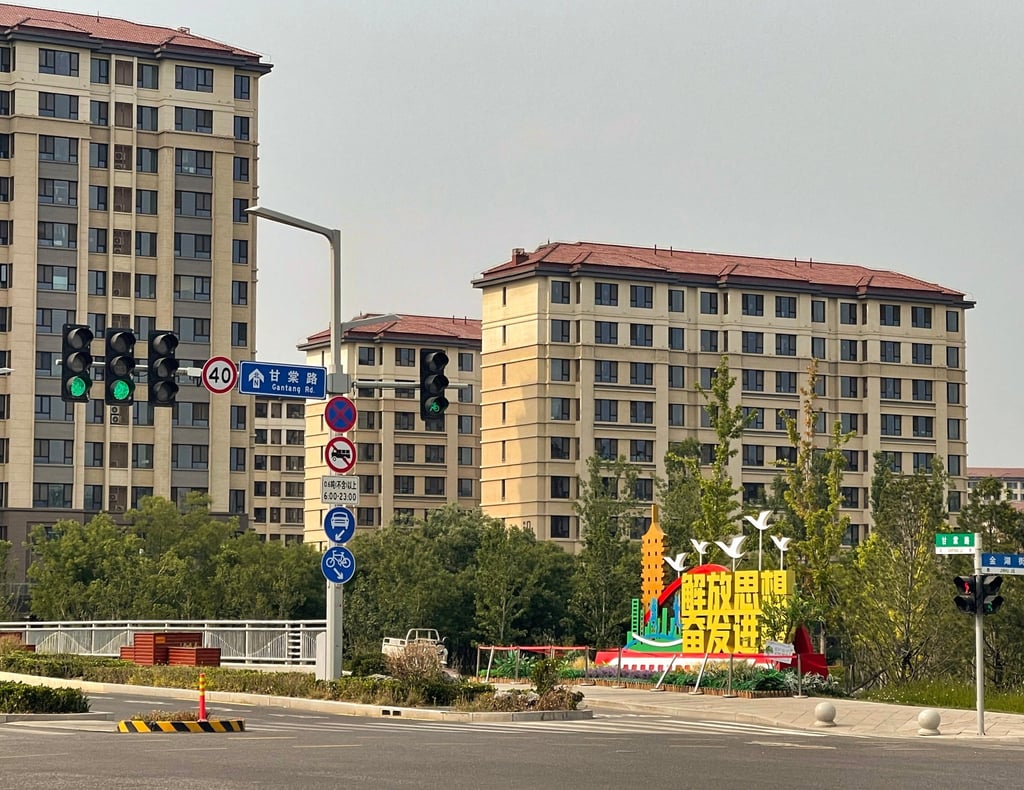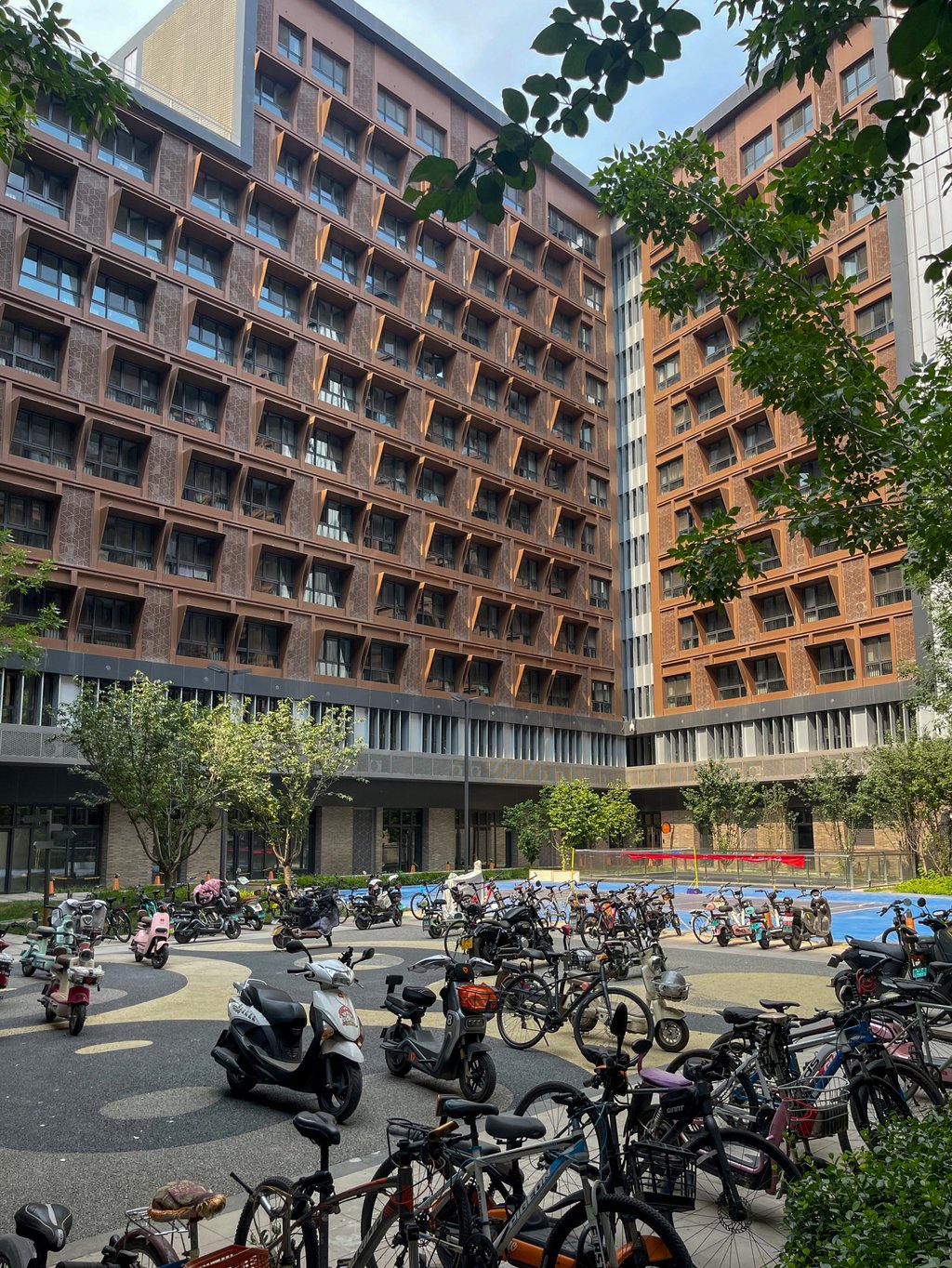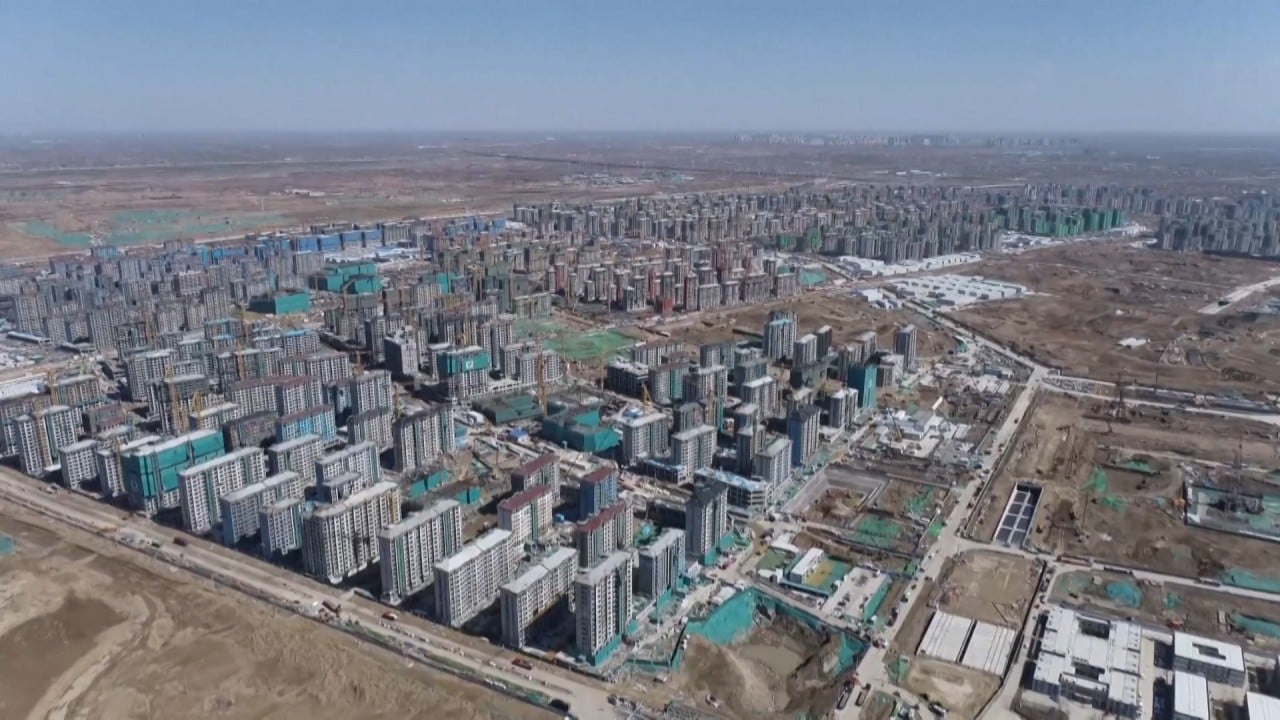The site, which was an open plain dotted by rivers and wetlands and home to a small rural community a decade ago, is now fully connected physically and digitally to the rest of China.
Unlike most major cities in China, there are no skyscrapers, underground passes or overhead walkways.
Instead, all its buildings are of medium height and, most unusually for a major city in China, more than 70 per cent of the city is given over to green spaces such as parks and lakes, while every road has cycle lanes running alongside them.
But although it has an official population of 1.2 million permanent residents, another striking feature is the relative lack of people out on the streets.
In the city’s Rongdong district – which hosts the planned finance district and tech park – most of the street-level commercial spaces remained vacant, waiting for businesses to move in.
David Chew, the founder of a Tokyo-based tech start-up, said Xiongan was still flying “under the radar”.
“Xiongan is yet to differentiate itself in terms of branding … is Xiongan becoming Beijing 2.0? It is still unknown for me,” Chew said.
However, some businesses such as real estate agents and kindergartens said they were seeing signs of increased activity – a possible sign that more Beijing residents were preparing to make the move.
In one apartment block, which has its own kindergarten and plenty of green spaces, a sales agent said all units in the estate were ready for people to move in and around two-thirds of the units had been sold, many to Beijingers preparing for a future move.
Elsewhere, plenty of convenience stores and pharmacies and well-equipped kindergartens and primary schools could be seen every 10 blocks or so.
Xiongan is yet to differentiate itself in terms of branding
At one kindergarten decorated in baby blue, one of the teachers said it was preparing for the arrival of its first American teacher in September.
The teacher said the centre were also trying to appeal to families by offering classes in English and Russian and offering child care late into the afternoon for parents who may need to spend more time at work before they can pick up their children.
The monthly fees of US$950 put it well beyond the budget of most current Xiongan residents – but the teacher said 40 children had already enrolled at the kindergarten – and it was confident it would eventually reach its target of having 100 children.

One of the busiest shops was a high-end dry cleaners and shoeshine store, where one of the employees said they were dealing with more than 200 items – most of them apparently luxury or tailored items – a possible sign that business from Beijingers visiting the city is picking up.
But even if that is the case, the lure of life in the capital remains strong.
Mike Yang, who moved to Xiongan in May, said he only came because he found a job in the city, but he still spent most weekends in Beijing.
“The truth is, people haven’t come yet,” said the 24-year-old, but added that the government may force more people to move there from the capital in the next few years.
Luo Tien, an architect in his early 30s and working for a state-owned construction company in Beijing, said he did not want to move from the capital to the new city because it would mean “rebuilding my social networks from scratch” and public services such as education and health “will not be able to match what’s available in Beijing for a long time”.
However, he admitted that if people had to move from the capital to keep their jobs, most would do so.
Richard Hu, an urban planner and professor at the Canberra Business School who visited the city in December, said the concept behind the city might be too “idealistic”.
He said people from across China were drawn to Beijing because it offered better career prospects and public services such as schools and hospitals, but “now the government wants to counter that force and move people and resources out”.

“People moving from Xiongan to Beijing is upward migration but moving from Beijing to Xiongan is downward migration,” Hu said.
“People move due to government orders, they have to do that and they don’t have other options … But when we talk about migration, it must be voluntary and driven by personal pursuits and social economic considerations.
“[Xiongan] is a government project, a state project, and there is strong political will to define the idea.”
Another problem the city faces is that it is struggling to attract private businesses – especially from abroad where it is little known.
People moving from Xiongan to Beijing is upward migration but moving from Beijing to Xiongan is downward migration
Michael Schumann, chairman of the board at the Berlin-based German Federal Association for Economic Development and Foreign Trade (BWA), led a delegation to visit the city in March.
He said: “It’s so amazing what they built there. It’s a pity then that you don’t hear about [Xiongan] so much in the sense of other future cities that are being built currently and that are being discussed currently.”
Schumann believes some of the urban technologies being developed in Xiongan to improve everyday life for residents could well be more advanced than in other comparable planned future cities.
Alain Saas, founder of a Toronto-based AI start-up, said the city’s “relative emptiness” and low rents could help attract start-ups.
But he said it needed better “interoperability with the world” – such as unrestricted internet access and rules making it easier for foreigners to acquire visas or residency permits.
It’s so amazing what they built there. It’s a pity then that you don’t hear about [Xiongan] so much
“If the city had the level of interconnection to the world as Hong Kong, a new city with the potential for cheap housing and like-minded pioneers, I’d move right away,” said Saas.
Edward Neale Knight, a China researcher from the Tony Blair Institute for Global Change who visited Xiongan in June, said it would take a long time for the city to rival the likes of Shenzhen, the tech hub on the border with Hong Kong that has developed rapidly in recent decades.
Xiongan’s future will depend on factors such as rent and the ease of getting a residency permit, or hukou, that allows people to use public services.

“If rent is cheap and they have less stringent hukou policies, lots of people will be willing to live there and attain an urban hukou. If the rent gets too high and the hukou policy is too restrictive, it will be a much less attractive destination,” Knight said.
“Of course the city was slightly empty [when I visited] but it is not meant to be finished for a number of years and actually the city was closer to completion than I thought it would be.”
He predicted: “Given the progress I saw, and the clear desire to embrace technology and take a green approach, I think Xiongan will be like Beijing’s less significant but slightly friendlier little brother in 10 years.”








